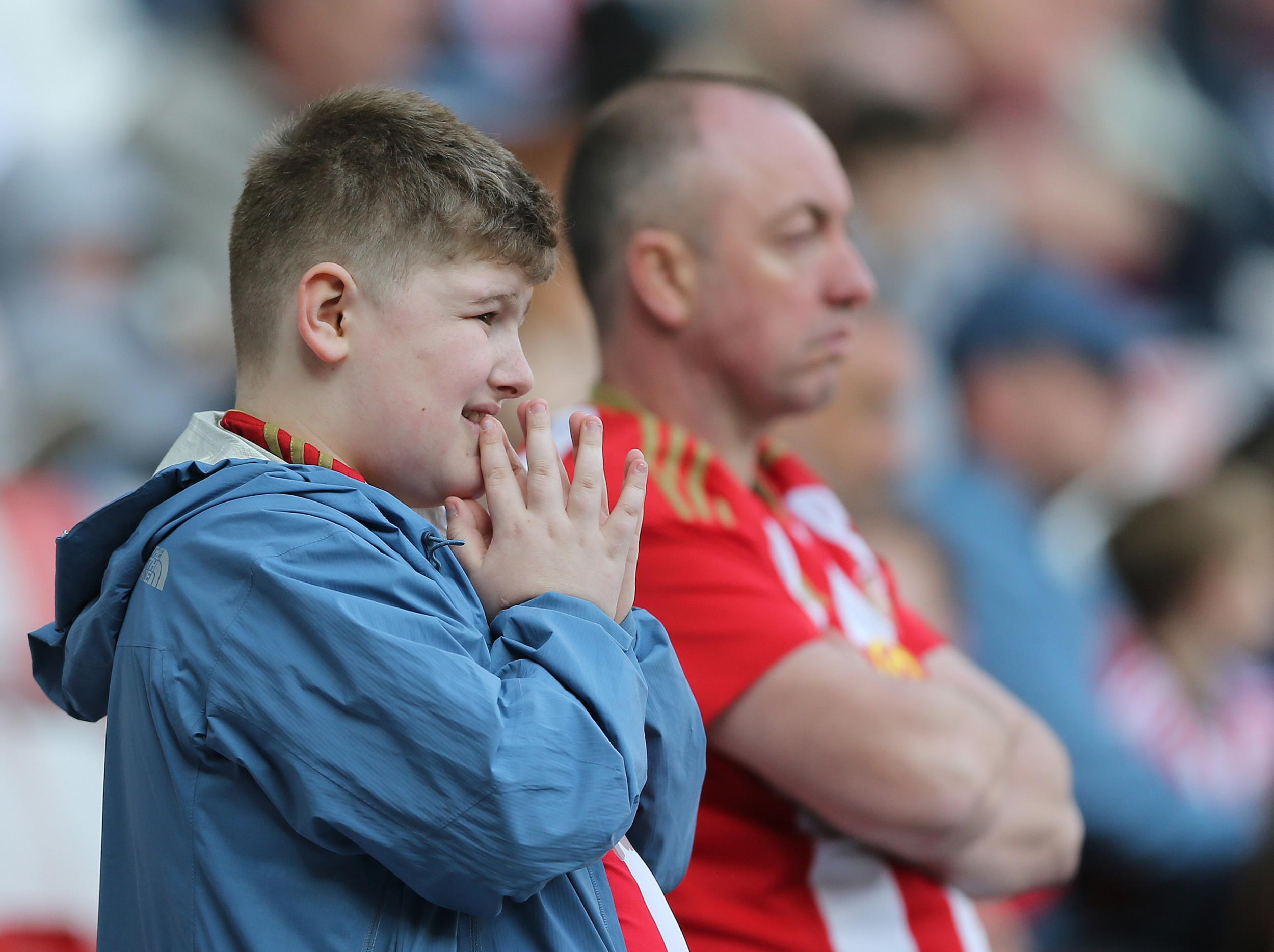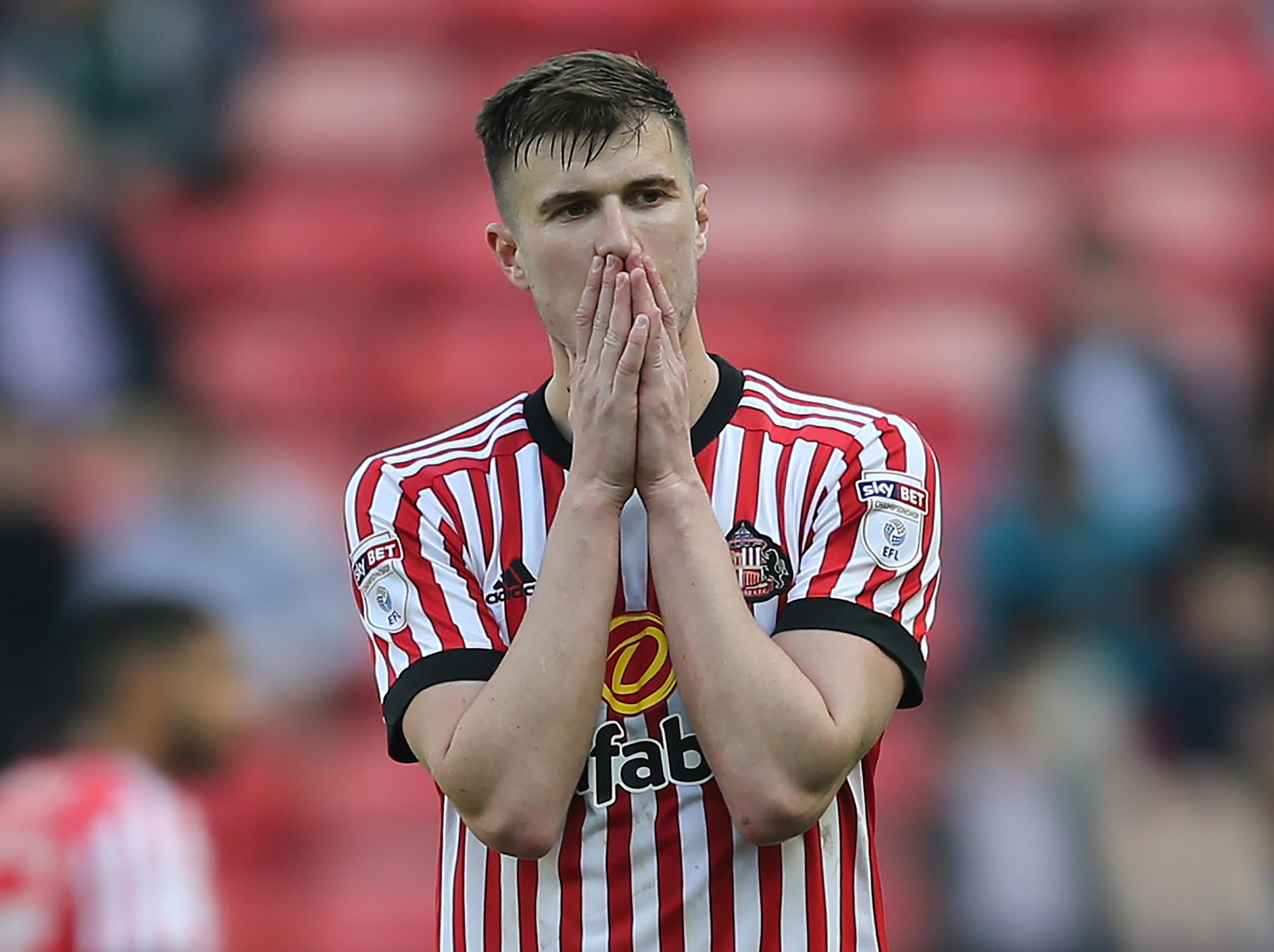Sunderland ‘Til I Die: Netflix pulls back curtain to reveal community, misery and misplaced faith
Chronicling a period of dismal failure for Sunderland, the docu-series itself succeeds because it never loses sight of the fact that the football club in question is an institution inseparable from its locale
Death, football and doleful devotion – and that’s just the title. Sunderland ‘Til I Die, an eight-part series commissioned by Netflix and released on Friday, is a behind-the-scenes account of the club’s calamitous season in the Championship that doubles as a thoughtful, mournful portrait of a provincial community. It is the latest in a spate of prestige docu-dramas about football to have emerged from the well-moneyed workshop of a streaming-service heavyweight.
Earlier this year Netflix released First Team: Juventus but for English viewers the obvious point of comparison here is All or Nothing: Manchester City, a similarly high-reaching eight-parter made recently by Amazon Prime Video, which pulled back the curtain on last year’s breathtaking title-winning season for Pep Guardiola and his team. If that show turned out to be a weirdly bland affair that suffered from the all-conquering brilliance of its subject, then Sunderland ‘Til I Die is its exact inverse: a close-quarters account of bleak and unrelenting failure, and a quietly magnetic watch.
If the title alone promises the sort of resigned anguish you simply don’t get with a Guardiola-led superclub, the show itself doesn’t disappoint. The series’ opening scene features a priest praying for an upturn in fortunes for Sunderland Football Club, intercut with images of matchday fans seething, screaming and staring to the skies in despair, before a lovely soft-focus credit sequence set to the Lake Poets’ elegiac Shipyards. Three minutes in, and we already have a small mountain of themes – community, history, misery and misplaced faith – that were never part of Amazon’s glossy offering.
Perhaps inevitably, there’s a certain degree of morbid fascination that comes with watching the expectant early stages of a season you know will soon implode in horrific style. “We want automatic promotion – to win the league,” declares club captain Lee Cattermole in episode one, with the wide-eyed conviction of a man who’s not yet frittered away a two-goal lead at Griffin Park.

To the creators’ credit, the show resists the urge to play up the club’s pre-season triumphalism in favour of a more humane study of how the slow shockwaves of week-by-week disappointment reverberate around the various facets of a football club: players, staff and wearying fanbase.
“You lose a game, you don’t really talk,” mutters goalkeeper Jason Steele, driving in work the day after a defeat. “It’s a good job you didn’t come in my house just now because my missus will tell you what a tosser I am.” He lets out a self-loathing laugh – he’s joking, but he isn’t. It’s grim stuff. And we’re still in pre-season.
Chief executive Martin Bain, who cuts an increasingly haunted figure as the season wears gruellingly on, is the closest thing the show has to a protagonist, although perhaps the most vital character of all, chairman Ellis Short, is conspicuously absent. He appears just once, in London, right at the end, and viewers are left to join the dots between his leadership vacuum and the tailspin into which his club has become stuck.
Elsewhere Brentian embarrassment-comedy abounds. Darren Gibson slinks into work the morning after his sozzled rant against his teammates has gone viral, a picture of bleary sheepishness. A soon-to-be-sacked Grayson stares blankly into his mineral water at a supporters’ evening as one frazzled fan tells him he’s presiding over the worst Sunderland team in living memory. In the days after their eventual relegation, the squad attend the fans’ end-of-season awards night, visibly wincing as they’re half-applauded into the room. Man City’s record-breaking season may have been impressive, but it never threw up this sort of TV gold.
Other titbits raise a less guilty chuckle. The gormless, industry-wide insanity that accounts for the existence of deadline day is revealed when a baffled Grayson says “no one seems to do deals when they should do – everyone waits until the last 24 hours”, immediately before overseeing a last-ditch, flop-strewn spending spree of his own. Later, two grizzled scouts make the unholy pilgrimage to a midwinter Tuesday-night game between Scunthorpe and Fleetwood. “He’s got gloves on and it’s not even cold,” snarls one about the player they’ve been sent to watch. The club retract their interest.
When relegation arrives, fans greet it with an air of drained resignation; sorrows are drowned by drink and song. Inside the club, the human cost is underlined. Office staff discuss the “restructuring” plans in fearful tones: everyone in Sunderland knows how little work is out there. As for the players, Bryan Oviedo tells us that the misery of the season has often left him crying on his own; Ashley Fletcher says his network of friends and family have helped him try and see it as some sort of positive. Loanee Jonny Williams leaves the training ground on his last day in a state of genuine sadness: “I’ve made friends here, and I won’t see a lot of them again.” He’s 25 and it’s his fifth loan spell – his fifth workplace – in as many years. The lasting impression we get of the squad is hardly of a gang of heedless mercenaries.
And the lasting impression of the club is of one that lies at the heart of its community. One of the unintentionally interesting elements of All or Nothing was how far removed Manchester City was from its immediate surroundings. Take away the fans and there are almost no links to the local area at all; the gleaming glass-and-steel confines of the Etihad Campus could be anywhere in the world, and smack far more of Abu Dhabi than Ashton-under-Lyne.

The Sunderland we see in this show is a different case altogether. North-east accents of varying thickness are a constant among the club’s day-to-day staff, be it caterers, coaches, physios, players and ticket officers. Early on, Lee Cattermole speaks keenly about his desire for new signings to “get in the team, stay in the team, believe in the area, get people wanting to move to the north-east”. In the show's opening moments Father Marc Lyden-Smith says: “The success of our team leads to the success and prosperity of our city.”
Such success eludes Father Marc and his self-flagellating congregation, but Sunderland ‘Til I Die succeeds because it never loses sight of the fact that the football club in question is an institution inseparable from its locale. And ultimately, it’s the portraits it paints of the fans and of the city, rather than the players or management, that make for the show’s best moments.
If there’s a lesson to be learned from this and All or Nothing, it’s that a peek behind the curtain isn’t always as thrilling you’d imagine. That, and the fact that dismal failure can make for triumphant TV.
Join our commenting forum
Join thought-provoking conversations, follow other Independent readers and see their replies
Comments
Bookmark popover
Removed from bookmarks